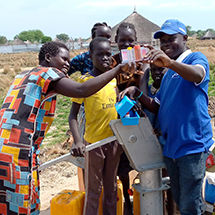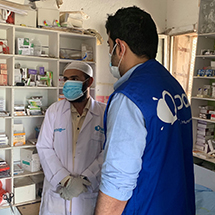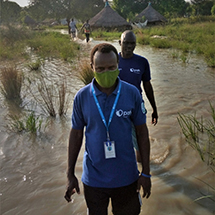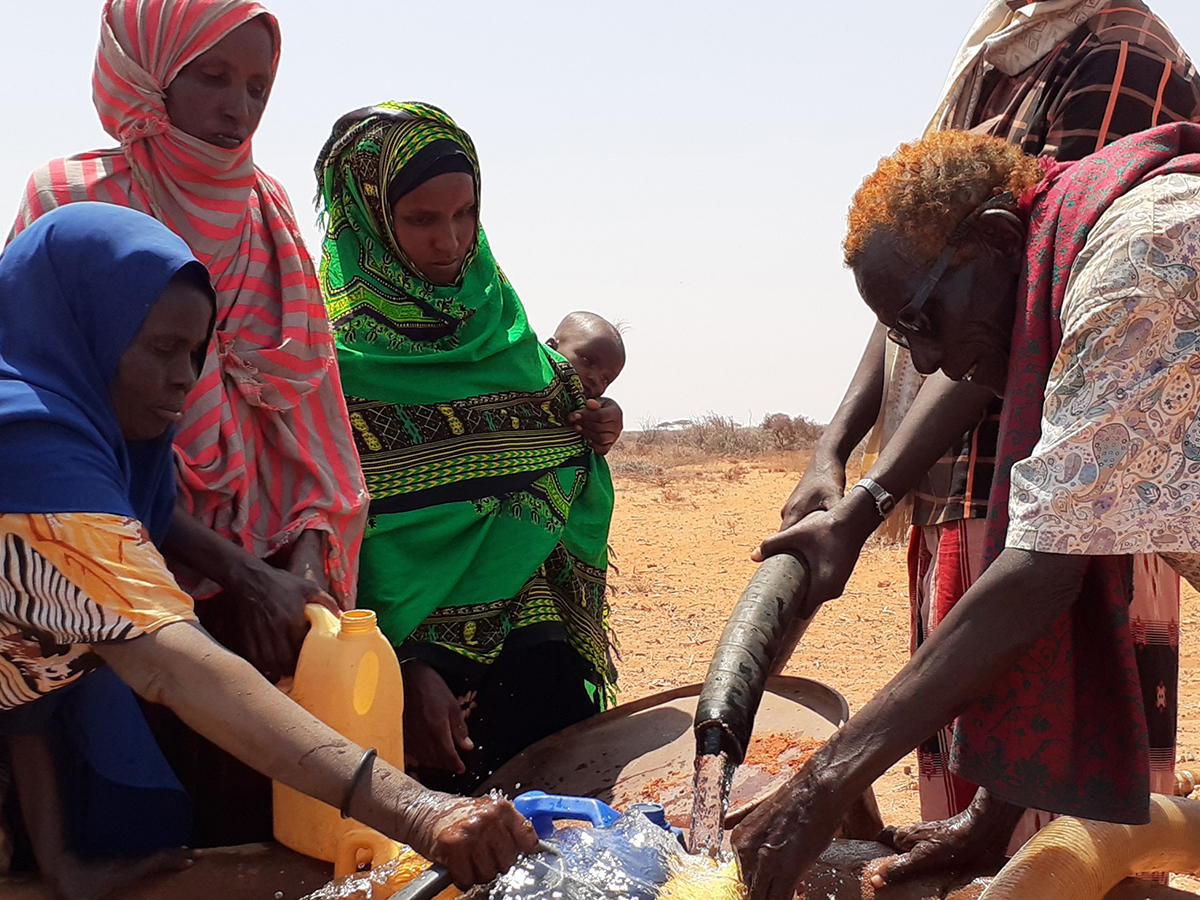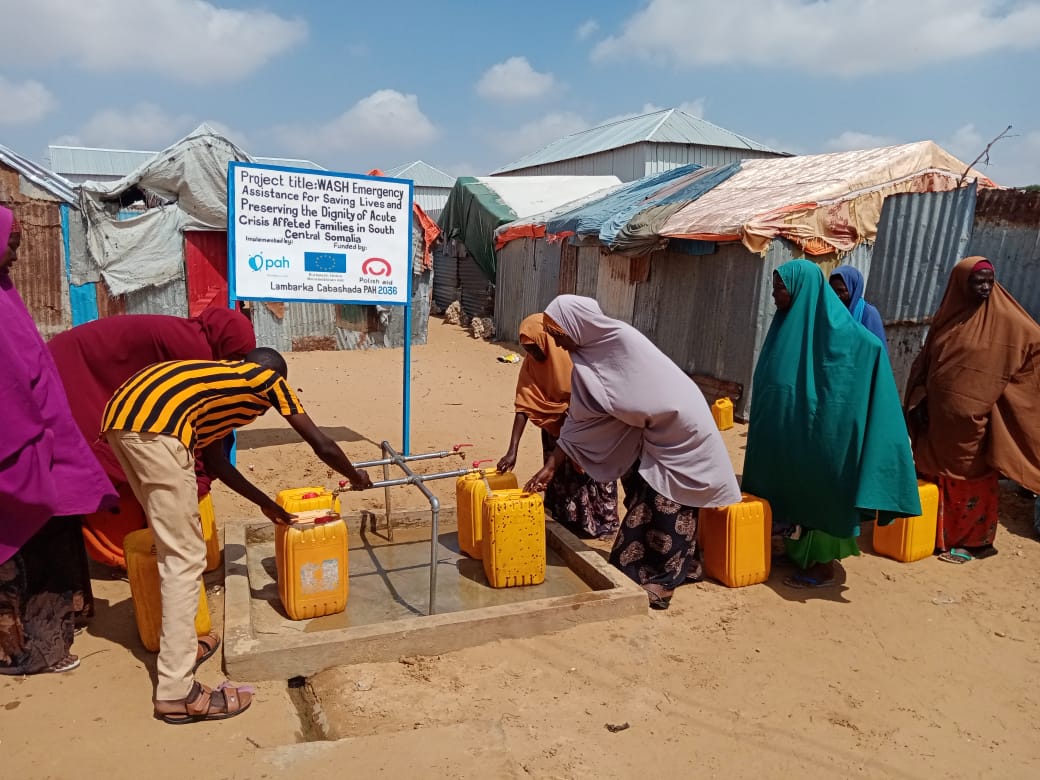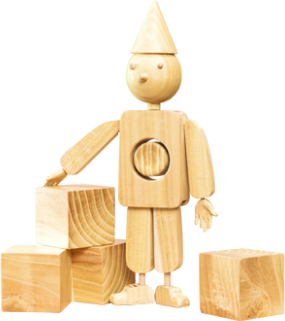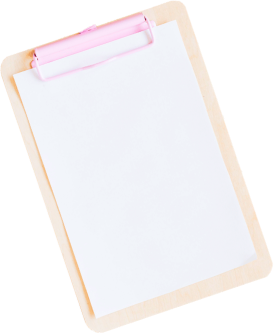
Number of aid recipients:
700 (including 509 women and girls)

Project location:
Jowhar district, Middle Shebelle region

Source of funds:
MEBLIK
The threefold humanitarian disaster that hit Somalia (COVID-19, flood/drought, and locust infestation) increased the number of malnutrition cases recorded in this country. The Middle Shabelle region was affected the most due to the destructive floods caused by the Deyr rainfalls in 2020 which destroyed arable land, planted crops, and resulted in population displacement, which led to significant drop in crop yields and made it impossible to find work in agriculture. Displaced population remains in critical conditions, and malnutrition, disease, and death indices remain alarmingly high.
The above-mentioned humanitarian crisis, when combined with high food prices, travel and flight limitations, bad practices in baby feeding and care, insufficient reach of the extended vaccination programme, poor health practices, and difficulties in accessing clean water sources, had played a major role in increasing the number of malnutrition cases in Somalia, and in the Middle Shabelle region in particular.
We actively ran a nutrition programme for moderately malnourished children below 5 years of age and pregnant and breastfeeding women in the Middle Shabelle region. The goal of this project is to heal moderately malnourished children aged 6-59 months, as well as pregnant and breastfeeding mothers in the western villages in Jowhar and prevent deterioration of moderate malnutrition into severe acute malnutrition. As part of this project we also identify severe, acute, and chronic cases of malnutrition among children below 5 years of age, as well as among pregnant and breastfeeding mothers in the villages of western Jowhar; such individuals are directed to other partners. Furthermore, PAH promotes using pre- and postnatal services and educates parents in, among other things, nutritional hygiene. We also held trainings in promotion of health and hygiene for women, men, and children in the Jowhar district (Middle Shabelle region).






